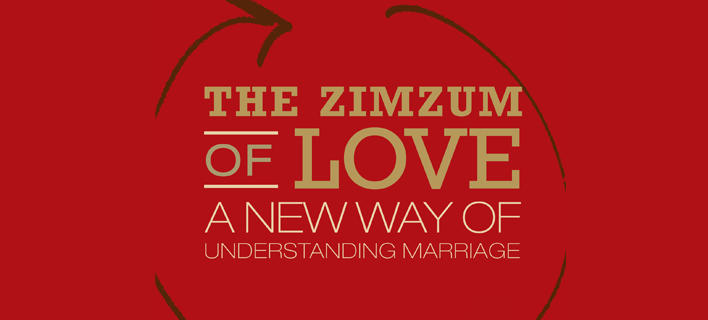
[this is what the patriarchy will look like, when we’re through with it]
I usually do whatever I can to avoid reading anything Matt Walsh says, because reasons. He’s the blog version of Rush Limbaugh and an un-educated John Piper rolled into one Godzilla-sized disaster. Seeing someone in any of my social media feeds link to him has been enough to cause this reaction:

And that person usually ends up blocked or hidden. However, he’s been showing up more and more often in my Facebook feed, and from people that I respect and value my relationship with them. So, here goes.
If you want to read Matt Walsh’s article, “Christian women: feminism is not your friend,” here’s a Do Not Link version.
~~~~~~~~~~
Before we get started, there’s something that Walsh is doing in this post that seems to be a consistent pattern with him: he re-defines words to whatever he wants them to mean in order to make his “argument.” In this post, “feminist” is re-defined to mean– an only mean– a woman who thinks there’s nothing wrong with murdering babies and “equal” means sameness, both of which are preposterous definitions.
Everyday I hear from people who tell me they are ‘pro-life feminist’ or ‘Christian feminist.’ Yet millions of modern feminists would respond that such a thing is not possible. Feminism, they say, exists largely to combat the patriarchal evils of pro-life Christianity. They claim that calling yourself a pro-life feminist is like calling yourself a carnivorous vegan, or an environmentalist Humvee enthusiast. The concepts are contradictory, they argue, and I agree — though I’d say the term ‘pro-life feminist’ could be more aptly compared to ‘abolitionist slave trader’ or ‘free market communist.’
Ok, first off, since there’s apparently “millions of modern feminists” who would argue this, I’m surprised he was unable to find a quote of anyone actually saying this– especially when I know they’re out there. I think it’s a completely accurate statement to say that Matt Walsh is lazy. In the posts I’ve seen, I’ve never seen him link to research, studies, even people who agree with him. He just spews bullshit for 2,945 words and then eventually runs out of steam.
But more importantly: yes, there are feminists who are primarily focused on maintaining reproductive rights; however, that is not the sum total of feminism, and, in fact, a lot of feminists critique these “single-issue” feminists for a variety of reasons. Intersectional feminists have a problem with reproductive rights being a “woman’s issue” when trans men and intersex persons need to have access to abortion and hormonal contraception, too. A lot of other feminists feel that trying to make it seem like feminism is singularly focused on reproductive rights to the exclusion of anything else is damaging.
In fact, in all of the feminist literature I’ve read, it’s actually unusual for them to spend time talking about reproductive rights; which Walsh would know if he’d bother to read any, which he openly admits that he hasn’t. The only two significant organizations I know of that seem preoccupied with reproductive rights is NARAL and Emily’s List. NOW does what they can to protect those rights, but it’s far from their only platform.
It is also completely possible to be a feminist and to be pro-life– and to be a Christian feminist and to be pro-choice, like me. I’m a Christian, and I feel that is consistent with being pro-choice as a civil issue. Being a Christian is not synonymous with being pro-life. In fact, many Christians (50-60%) are politically pro-choice while having ethical and moral reservations. Feminism is an extremely large tent, and people only have time to maintain their own education and activism in certain areas. For me, I focus on sex education for teenagers and raising awareness about abuse and rape– others focus on violence against women in an international context, like sex trafficking. These are a tiny sliver of what feminists can talk about and fight for.
Also, most of Walsh’s argument in this post centers on the idea that feminism is the only thing responsible for the “slaughter of countless innocent babies,” since it was primarily the feminist movement that got it legalized in America. The problem with this argument is that the number of pregnancies that were terminated before and after Roe vs. Wade is exactly the same. Legalizing abortion didn’t increase the number of abortions– it just made them safer.
And, feminists are constantly working to lower the abortion rate, because the feminist goal is for abortion to be extremely rare. How do we make it rare? By pursuing paid parental leave– for both mothers and fathers. By subsidizing daycare. By making contraception available to all the people who need it. These things could dramatically reduce the abortion rate to something like what it is in other developed nations, where the rate is half of what it is in America. There have been studies conducted in Michigan and St. Louis– when these things become available to the people most likely to consider an abortion, the abortion rate drops immediately and drastically.
Who opposes these things? Oh, right. Conservatives. Like Walsh. People aren’t having abortions because it’s legal– they’ll have them whether or not it’s legal. They are having them because the world we live in is hard.
What truth did feminism reveal at all, actually?
That women are equal to men in human dignity and intrinsic value? No, feminism did not reveal this. Christianity revealed it. Christ revealed it. Christian thinkers throughout the ages have affirmed it and taught it; notably Thomas Aquinas, who said that women are meant to rule alongside men. That was 800 years ago, or 600 years before the term ‘feminist’ existed.
Ok, yes and no. As a Christian feminist, I believe that Christ exalted women at pretty much every opportunity and treated them as equals– or even as his superior, on one occasion. I believe that his followers did the same– Paul frequently praises women in leadership positions, and he describes at least one woman as a leader over him. So yes, there are roots of feminism in the Christian tradition.
However.
There is also a long, horrific history of flagrant misogyny in the Church. There are archbishops removing a woman’s name from Scripture. Clement said “every woman should be filled with shame by the thought that she is a woman.” Tertullian described women as “being built over a sewer.” St. Augustine asserted that women were not created in the image of God and that we have “no use” (except, he grudgingly acknowledges, possibly pregnancy). Even Thomas Aquinas, who Walsh quoted here, said that women are “defective and misbegotten.” John Wesley told women to be “content with insignificance” and Martin Luther… well, he said a bunch of shit, because by even Christian-theologian-patriarch standards, Luther was a misogynistic son of a bitch.
This is why the church needs feminism– because the last two thousand years of church teachings have been riddled by misogyny and sexism. Many of St. Augustine’s writings form the basis for long-held Christian orthodoxy, and he declared that half of the people on this earth do not bear the imago dei. Martin Luther, whose teachings formed the basis for Protestantism and evangelicalism, said that it’s better for women to die in childbirth than to live a long life. Christian feminism seeks to overcome these failings in our theological systems, to breathe fresh life into these doctrines so that they more truly represent what Christ did and taught.
Similarly, equal legal protections are good, and feminism, at one point many years ago, helped ensure those legal protections. Times have changes, and feminism no longer serves that purpose.
Yes, technically, women have the right to vote, own property, and divorce their abusive husbands now– so yes, feminism is no longer pursuing those goals. However, sexism still exists, as does the reality that 1 in 4 little girls will be sexually abused, that 1 in 5 women will be sexually assaulted, that 1 in 7 married women will be raped by their husbands.
Walsh doesn’t even mention this. He accuses feminists of painting some horrible picture of reality that doesn’t exist– that feminists are literally making shit up in order to convince women that they’re oppressed with some horrible, fake, woe-is-me sob story. Except, most women– with the exception of women like Mary Pride, Mary Kassian, Phyllis Schlafly, and Elisabeth Elliot, who somehow ignore this– experience oppression every single damn day of their lives. We are catcalled and harassed virtually everywhere we go. I had a male friend look me in the face and say that it just makes sense for a man to dismiss a woman’s arguments because we’re “too hormonal.” Women, for a variety of factors, earn less than men, with Hispanic and black women being horribly affected by the wage gap.
Feminism is necessary because of these things. Feminism doesn’t just exist to protect reproductive rights. It exists to fight for the marginalized and oppressed, no matter what shape that person might take.
We’re not fighting to be “the same” as men, as Walsh argues when he accuses feminists of being gnostic (which, wow, does that ever expose his complete ignorance on this subject). We’re still fighting because men like Walsh can write an entire post about how “feminism is not your friend,” never even once mention the rampant violence against women, and hardly anyone will even notice.












